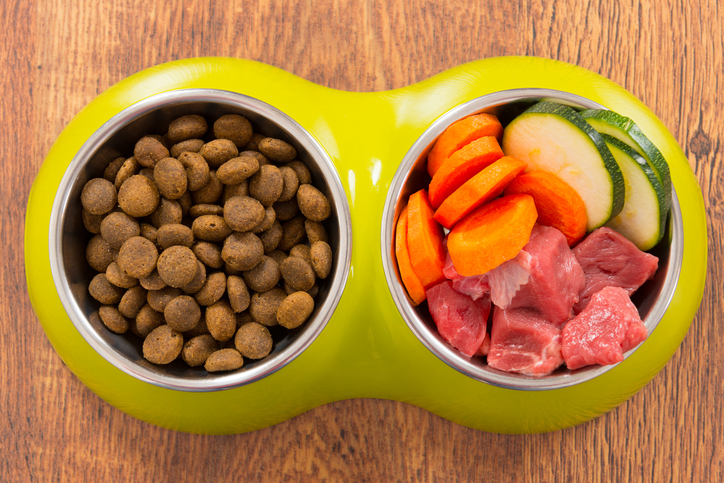Avocado
- Food Hazards
- Avocado
- Bread Dough
- Chocolate
- Macadamia Nuts
- Raisins and Grapes
- Xylitol
Ingestion of avocado (Persea americana) has been associated with myocardial necrosis in mammals and birds and with sterile mastitis in lactating mammals. Cattle, goats, horses, mice, rabbits, guinea pigs, rats, sheep, budgerigars, canaries, cockatiels, ostriches, chickens, turkeys, and fish are susceptible. Caged birds appear more sensitive to the effects of avocado, while chickens and turkeys appear more resistant. Although an old case report exists of two dogs developing myocardial damage after avocado ingestion, dogs appear to be relatively resistant compared with other species.
Etiology:
Ingestion of fruit, leaves, stems, and seeds of avocado has been associated with toxicosis in animals; leaves are the most toxic part. The Guatemalan varieties of avocado have been most commonly associated with toxicosis.
When purified, the toxic principle in avocado, persin, causes mastitis in lactating mice at 60–100 mg/kg, and dosages >100 mg/kg result in myocardial necrosis. Goats develop severe mastitis when ingesting 20 g of leaves/kg, whereas 30 g of leaves/kg results in cardiac injury. Acute cardiac failure developed in sheep fed avocado leaves at 25 g/kg for 5 days; 5.5 g/kg of leaves fed for 21 days or 2.5 g/kg for 32 days caused chronic cardiac insufficiency. Budgerigars fed 1 g of avocado fruit developed agitation and feather pulling, while 8.7 g of mashed avocado fruit resulted in death within 48 hr. Myocardial injury, mastitis, and colic have been reported in horses ingesting avocado fruit and/or leaves.
Pathogenesis:
Clinical Findings:
In lactating animals, sterile mastitis occurs within 24 hr of exposure to avocado, accompanied by a 75% decrease in milk production. Affected mammary glands are firm, swollen, and produce watery, curdled milk. Lactation may provide a degree of protection against myocardial injury when avocado is ingested at lower doses. In nonlactating mammals, or at higher doses, myocardial insufficiency may develop within 24–48 hr of ingestion and is characterized by lethargy, respiratory distress, subcutaneous edema, cyanosis, cough, exercise intolerance, and death. Horses may develop edema of the head, tongue, and brisket. Birds develop lethargy, dyspnea, anorexia, subcutaneous edema of the neck and pectoral regions, and may die.
Lesions:
Mammary glands are edematous and reddened, with watery, curdled milk. In animals with cardiac insufficiency, there is congestion of lungs and liver, often with dependent subcutaneous edema. There may be pulmonary edema and free fluid within the abdominal cavity, pericardial sac, and thoracic cavity. The heart may contain pale streaks. Histopathologic lesions in the mammary gland include degeneration and necrosis of secretory epithelium, with interstitial edema and hemorrhage. Myocardial lesions include degeneration and necrosis of myocardial fibers, which are most pronounced in ventricular walls and septum; interstitial hemorrhage and/or edema may be present. In horses, symmetric ischemic myopathy of the head muscles and tongue, as well as ischemic myelomalacia of the lumbar spinal cord, have been described.
Diagnosis:
Diagnosis of avocado toxicosis relies on history of exposure and clinical signs. There are no readily available specific tests that will confirm diagnosis. Differential diagnoses include other causes of mastitis (eg, infectious) and other myocardial disorders, including ionophore toxicosis, yew toxicosis, vitamin E/selenium deficiency, gossypol, cardiac glycoside toxicosis (eg, oleander), cardiomyopathy, and infectious myocarditis.
Treatment:
- Food Hazards
- Avocado
- Bread Dough
- Chocolate
- Macadamia Nuts
- Raisins and Grapes
- Xylitol




